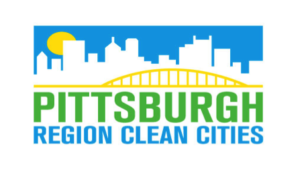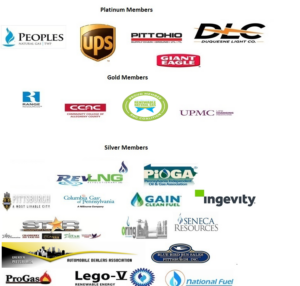By: Kristie Kubovic, Director of Communications, Shale Media Group
Images Provided By: ProGas, Inc. and Sarver Landscape Maintenance Company
Since 1946, Sarver Landscape Maintenance Company has been servicing Western Pennsylvania. The landscape maintenance company serves commercial properties, which include institutional, corporate, multi-family development, and industrial sites.
After three generations the landscaping and maintenance company is now on the cutting edge. Sarver’s just replaced six of their gasoline-powered mowers with propane-powered ones.
Adam Sarver, President, Sarver Landscape Maintenance Company, spearheaded the project. Sarver says the company decided to make the switch for a few reasons.
“The biggest reason is the ability to control our costs. Plus a benefit of it is the ability to market and push for a green, smaller carbon footprint in an industry where all we really do is burn fuel,” relayed Sarver. “If we’re able to reduce our carbon footprint and at the same time control costs, it’s a win-win.”
In terms of mowing, Sarver Landscape Maintenance Company is not the first in Western Pennsylvania to make this transition; however, they are among the first. The transition to propane mowers has been more popular in other parts of the country, such as California, Florida, Texas, New York, and Washington DC.
Sarver first discovered the option of powering mowers with propane from reading industry magazines and looking into the sustainability of where fuel charges are going. After weighing the information, Sarver sought out Ron Schramm, President, ProGas, at the Tri-State Alternative Fueling Expo.
ProGas, Inc. is a propane distributor in Pennsylvania, West Virginia, and Ohio that services residential and commercial accounts along with propane motor fuel, known as autogas. At the Expo, ProGas was highlighting running propane in mowers and small engines.
ProGas has been a driving force behind the slow and steady growth of propane use as an alternative fuel in the region. Sarver says that Schramm was extremely helpful and had answers for all of their questions.
Schramm explained, “Propane is an alternative fuel that is easy to store, has a high energy content, produces low emissions by contributing to less greenhouse gas emissions [as compared to gasoline and diesel], and is non-toxic and presents no threat to soil, surface water, or groundwater.”
Jeremy Wishart, Deputy Director, Business Development, Propane Education & Research Council (PERC), informed, “On average, propane fueled small engines can reduce fuel costs per hour by 30 percent compared with gasoline engines and more than 50 percent compared with diesel fueled equipment.”
Additionally, Wishart added, “Propane fueled equipment can reduce greenhouse gas emissions by more than 15 percent and carbon monoxide emissions by more than 40 percent compared with gasoline and diesel powered equipment.”
Due to their environmental friendliness, Schramm says these propane propelled lawn mowers could even be used on ozone action days.
“Using propane has a lot to do with our ability to separate ourselves from our competition. There aren’t many commercial landscaping companies in this area truly going propane yet. There isn’t a huge demand for it, but we’re starting to see some companies, like PNC, PPG and UPMC, show some interest”, relayed Sarver.
Sarver added, “We’re hoping that we’ll be on the front edge of the industry and the ‘Green Push’ in Pittsburgh. It seems that Pittsburgh is a little slower to adopt the green initiative, in comparison to a lot of other regions across the country which already have. We’re hoping to be on the cutting edge and eventually completely run on propane.”
For the transition to propane, Sarver Landscape Maintenance Company purchased six John Deere units from West Central Equipment, located in Butler, PA. The propane-mowers now make-up just under one-third of their fleet.
Sarver’s location, provided the aluminum cylinders to fit on the mowing equipment, and supplies the company with propane. Sarver relayed, “Having the fueling station installed and set-up at our shop is another way to control costs. This cuts down on man hours of fueling at a gas station, which add up.” Additionally, ProGas provided information for Sarver to apply for the PERC Propane Mower Incentive Program, which allots Sarver Landscape Maintenance Company $1,000 towards the purchase of each of the new propane mowers. The PERC Incentive Program helped with Sarver’s decision to purchase the new mowers. Sarver explained, “There is a clear added cost to moving into propane.
Whether it is a conversion or factory-built machine, they cost more. The PERC incentive takes if from ‘that would be a good idea and nice thought’ to ‘we could actually make this work.’ The transition doesn’t have to be a huge upfront hit.” Additionally Sarver added, “This was a gamble for us. When we bought the John Deer propane mowers this year, we couldn’t find anybody in the area to vouch for the conversions. The PERC incentive helped mitigate some of that financial risk and put us at ease that there is effort out there to do the proper research and find the right way to use propane.”“Propane mowers are specifically designed by engine and mower manufacturers, or OEMs, to the same standards for quality, safety dependability, and durability as their gasoline and diesel counterparts,” noted Wishart.
Sarver also pointed out that his customers still pay the same cost whether gasoline or propane is utilized at their property. He also noted that another benefit of the propane mowers is that they run quieter than the gas-powered ones, which is helpful in corporate settings.Sarver concluded, “My hope is that people will demand propane and that we could open up a few doors to make some Pittsburgh companies see that it can be done and that there are benefits from a PR standpoint and from a corporate conscious standpoint. Our hope is the idea of ‘Going Green’ and using a greener company starts to resonate with decision makers.”
Slippery Rock University was the first for ProGas to utilize propane mowing technology. Additionally, many fleet vehicles, such as school buses, shuttles, and police vehicles are utilizing autogas as a fuel source. ProGas also supplies propane autogas to 20 school districts and seven fleet accounts.
For more on Sarver Landscape Maintenance Company, visit www.sarverlandscape.com; call 724.935.4250; or email info@sarverlandscape.com. For more on ProGas, visit www.myprogas.com; call 866.452.7262; or email info@myprogas.com.

